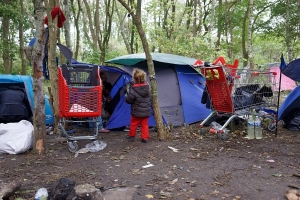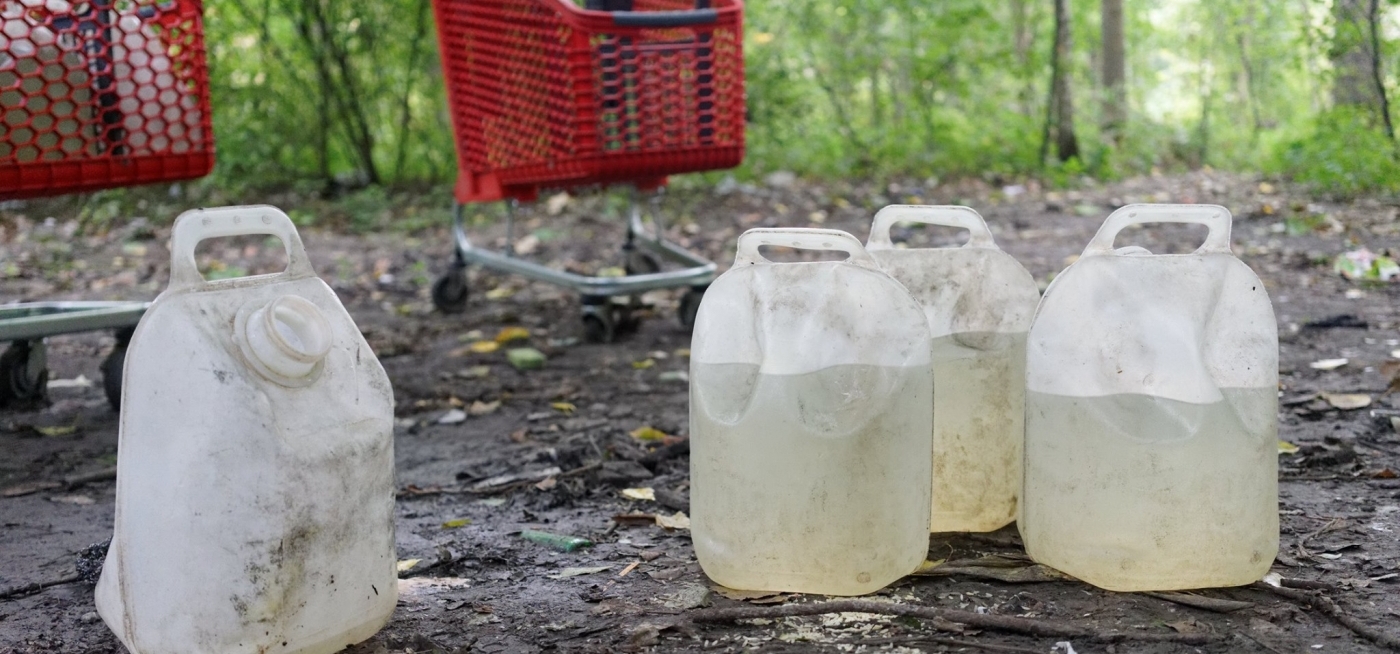Salim’s Story
Published 24th January 2020
Yesterday I met Salim. He was kicking some rocks around in the middle of the forest near his temporary migrant camp in Dunkirk, France. Around him, all that was left of what had been his home for the last two weeks was an extinguished fireplace, a can of beans thrown on the floor, empty bottles of water, and clothes hanging to dry on trees.
On Tuesday morning, French riot police had surrounded the camps, evicted the 700 people living there and made some arrests. Scared, Salim ran away with other dispossessed people, deeper into the woods. All he had in the world…a few beans he’d been cooking for his breakfast trampled into the earth. His only shelter from the sun, the flies, the dirt and the wind…a tent…gone who knows where?
Salim is only 14. He’s from Iraq. A country scarred by decades of war.
He’s one of the unaccompanied minors that live in the informal settlements of Dunkirk. There are many small settlements in the area: empty corners of land among the trees where people pitch their tents and cook food together. Salim’s settlement had been there for months before the eviction.
When I met him with the rest of Doctors of the World (Médecins du Monde) team, we’d gone to the camp to assess the situation and health needs. That morning, the state-run camp of Grande-Synthe had been evicted. We’d heard some of the asylum seekers might have escaped the eviction (which meant being moved to far away parts of France) by joining a makeshift camp in the forest.
We were not prepared for what we saw. The people living in the forest had been cleared out too. A man told us about the violence used against them forcing them to abandon their camp. Salim and these other young men, fifteen in all, were afraid that the police might come back. They had run out of water and food but were too scared that the police would reappear to venture beyond the edge of the forest. Charities would be distributing food later that evening. But these frightened people didn’t want to risk it. It took a lot of persuasion for us to reassure them and make sure they’d have basic provisions to see them through the night.

We took Salim with us. As a child, he’s entitled to special protection. We contacted another charity to make sure he’d be safe and cared for. But what if yesterday he had refused to tell us his age? Often, children like Salim are nervous of strangers, too afraid to speak.
The people in Calais and Dunkirk often ask about Brexit. They have families and communities in the UK they want to be reunited with. Some are their parents, children, and loved ones; others are their neighbours and relatives. Each of these women, men and children have a history, a life, and a desire to move on – to reach a safe place where they can restart their lives.
The UK government must do more to guarantee safe and legal routes for people seeking asylum in the UK. Humanitarian needs must always be the highest priority, and more must be done to support people in these desperate circumstances.
Britain has a proud history of providing safety to those in need. We shouldn’t turn our backs on boys like Salim.
Originally appeared in OpenDemocracy
